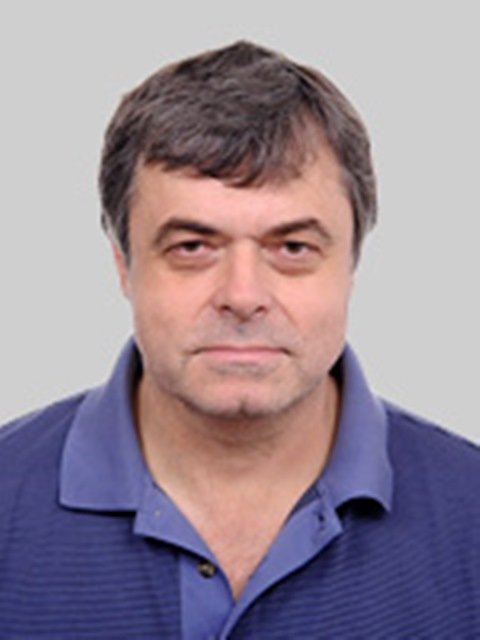Euromaidan: The new club of Russia haters
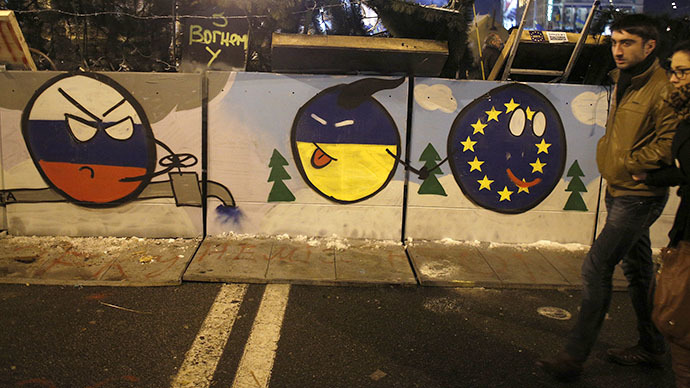
Ukrainian President Victor Yanukovich’s visit to Moscow comes as a critical test for Kiev’s relations with Russia, challenged by the army of pro-European protesters at Independence Square and the blessings of their numerous foreign mentors.
What was initially seen as a genuine outburst of public anger over the local police crackdown on the peaceful protestors in Kiev on Nov. 30, with the demand to make all responsible parties accountable, has finally transformed into a stage-managed “anti-Russian tsunami.” The sacking of a group of ranking Ukrainian officials, including Kiev’s mayor and the head of city police, undertaken by embattled President Yanukovich changed nothing. It by no means eased tensions or dispersed the crowd.
On the contrary, it only emboldened Ukrainian opposition as they waved EU blue banners with yellow stars in an effort to launch a major offensive against the “primary evil.” The force, seen as the root of all Ukrainian troubles – ineffective economy, high inflation, unemployment rates, and unprecedented corruption – is described as “Putin’s Russia.”
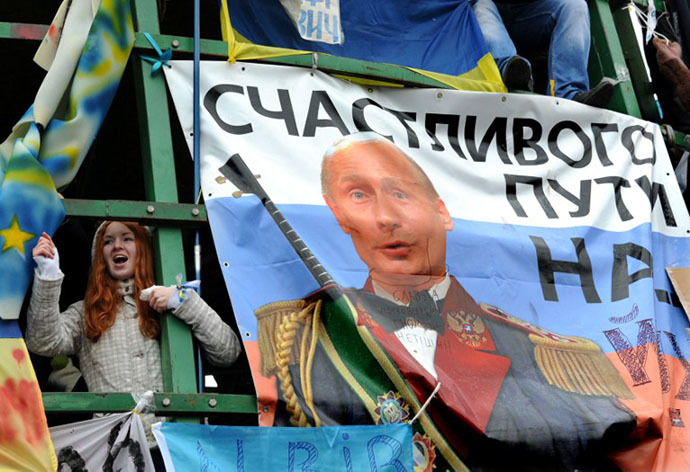
It is high time to recall that it was on the eve of President Yanukovich’s visit to Russia that opposition activists circulated leaflets at Maidan, which said that the “upcoming 48 hours from Dec.15 to Dec.17 would decide the fate of the whole standing at Maidan.” The Maidan manifesto continued to say that “Yanukovich is going to Moscow to sell off our Motherland by signing an agreement of Ukraine joining Customs Union with Russia, Belarus and Kazakhstan. It is only we with our resolve and high spirit who can prevent Ukraine from turning into a miserable Russian province.”
By doing so, the opposition stepped up its psychological offensive on President Yanukovich, aiming to leave him with no field for maneuver during his negotiations with Moscow. “We warn Yanukovich of any deal which would lead to Ukraine joining the Customs Union,” Boris Tarasyuk, Ukraine’s ex-foreign minister, read from the resolution of the last Maidan meeting, held last Sunday.
It’s no surprise that all outspoken critics of the Kremlin from near and distant abroad - from ex-Georgian President Michael Saakashvili to US Senator John McCain – have rushed to Kiev. None of them want to miss the golden chance to climb Euromaidan’s high rostrum to spit into the face of the Russian “neo-imperialist regime,” described as the threat to Ukrainian sovereignty.
US Senator John McCain had to cover thousands of miles to find such a grateful audience. The crowd responded to his speech with a powerful “Thank you!” in English, the way Americans themselves hardly did. I believe never in his career, including the mass rallies of the 2008 US election campaign, did McCain see the same level of enthusiasm as he did at the Maidan protest - which gathered 200,000 people last weekend.
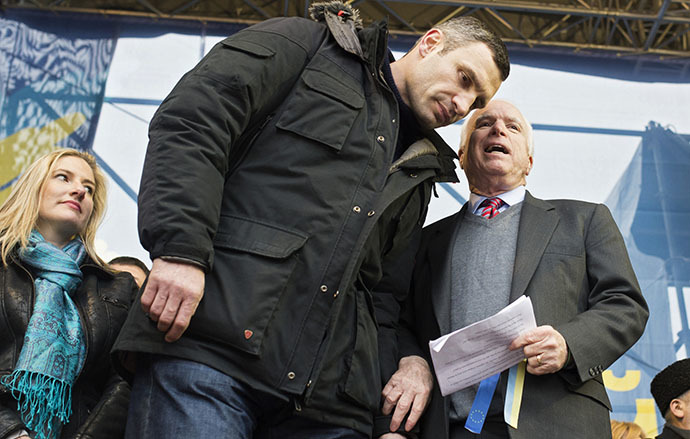
So if you don’t like Russia and are desperate for publicity, don’t waste time. Go to Ukraine’s Maidan to mix with local folks who are braving the December chill and police batons to defend their Motherland “from Putin.” You may just stroll over across Independence Square, with its energizing protest mood, and distribute bread and biscuits among the protestors – just as US Assistant Secretary of State Victoria Nuland - accompanied by US Ambassador to Ukraine Geoffrey Pyatt - did the other day. Or you may even erect your own tent at Maidan, inspired by the example of Polish deputies who decided to share the daily burden of the protests with ordinary Ukrainians under the cameras of international TV channels. The unique feature of Maidan is that in its present shape, it is serving as the bizarre international club of “Russia haters.” Those on the other side of four-meter barricades - made of disposed tires, old furniture, barbed wire, and ice - are ready to offer you a sip of hot tea, a plate of porridge, and welcome you to the club as a new member.
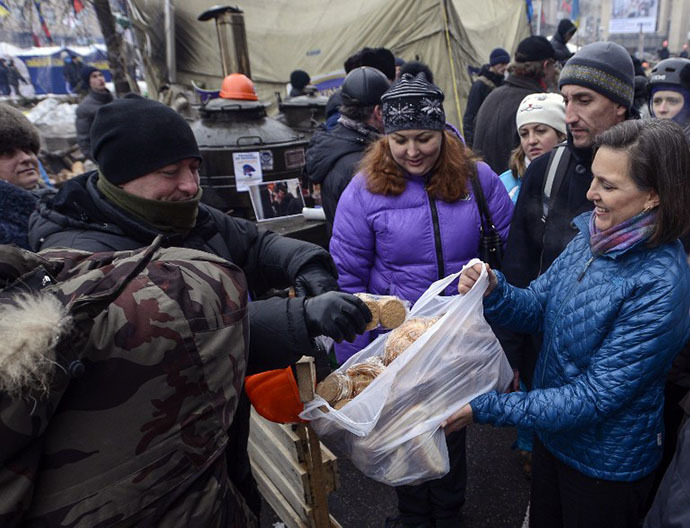
You may ask: Who is going to pay for this “24-hour carnival of democracy” under EU banners? Ironically, on the eve of President Yanukovich’s visit to Russia, it turned out that the only thing the United States can offer Ukrainians for their Euro-Atlantic choice (apart from Ms. Nuland’s biscuits handed over at Maidan) are US Senate sanctions, promised to Ukrainian officials found guilty of suppressing the democracy.
As for the top EU bureaucrats, they looked embarrassed by the very idea of Brussels offering Kiev something tangible as a part of its would-be Association Agreement with the EU. If signed, the agreement with Brussels would start the long and torturous process of the restructuring of the Ukrainian economy which it can hardly afford itself and which can hardly survive without massive outside help of estimated tens of billions of euro. One of the results for Ukrainian manufacturers would be the inevitable loss of the Russian market – the biggest for local exporters.
However, as one of the ranking EU diplomats explained, “We would be not in a position to give Ukraine fish – the only thing we can do is to give Ukraine a hook to catch fish.” Finally, the IMF - which started negotiations with Kiev on Monday - is not in a hurry to grant Kiev a loan to keep its economy afloat.
So, it turned out that the only state which at this point can come to the rescue of Ukraine’s economy, sliding to the depth of default, is Russia - hated by EU protestors. Days before President Yanukovich talks with President Putin, Ukrainian Prime Minister Mykola Azarov said that Kiev hoped for a cheaper price for Russian gas supplies to Ukraine to emerge from the Russian-Ukrainian summit meeting. President Putin’s aide Andrei Belousov was quoted by agencies as saying that if asked for a loan from Kiev, Russia would not say “no.” He added that “the situation in Ukraine is such that without loans they would be unable to preserve economic stability. I can’t rule out that the Russian loan would be granted if they ask for it.”
So, here lies the major paradox of the Ukrainian “anti-Russian club,” which will seemingly agree to a rather odd formula: “Integration with beloved Europe sponsored by hated Russia.”
The statements, views and opinions expressed in this column are solely those of the author and do not necessarily represent those of RT.
The statements, views and opinions expressed in this column are solely those of the author and do not necessarily represent those of RT.
